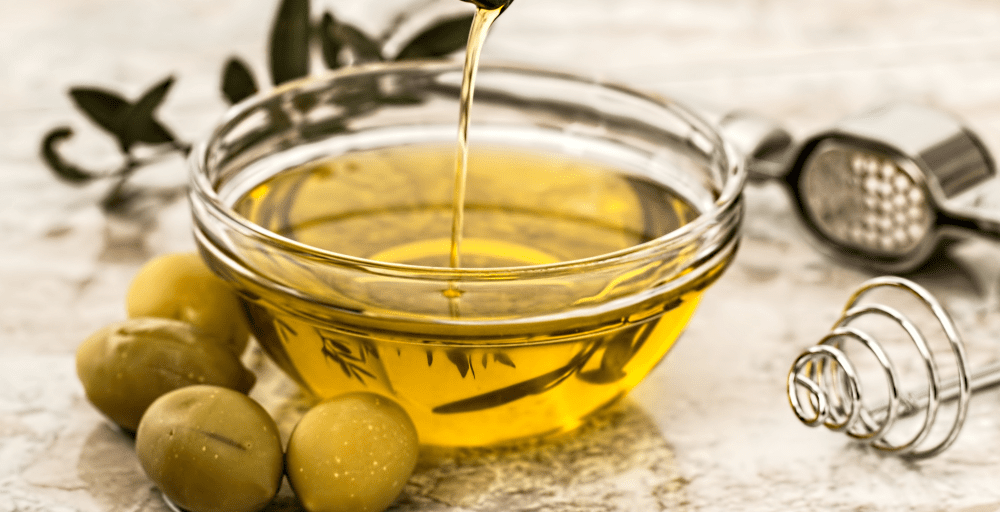
Revealing the Truth About Olive Oil In Nutrition and Health

 Everything Italian quickly finds a way into our hearts. Think Ferraris, pasta, Italian ice cream, and olive oil. Let’s shift our focus onto olive oil here. The olive oil industry builds on its assertion that olive oil is the most nutritious oil and that it is ‘good fat.’
Everything Italian quickly finds a way into our hearts. Think Ferraris, pasta, Italian ice cream, and olive oil. Let’s shift our focus onto olive oil here. The olive oil industry builds on its assertion that olive oil is the most nutritious oil and that it is ‘good fat.’
Does a full dissection of the scientific studies on olive oil support this? We all know how people barely question the media and press releases. Distortion of facts frequently makes the ‘truth’ into sensations. But what is the truth about olive oil?
The Truth to the Hype
Let’s dive right into a better understanding of olive oil. The hype is that olive oil will protect you from heart disease, stroke, or heart attack. However, the truth is that while monounsaturated fats are better for your health than saturated or trans fats, monounsaturated fats are not good for your health.
To place this in perspective, consider that cigarettes with less nicotine and fewer toxic chemicals are ‘better’ cigarettes. Would you now start convincing your kids and loved ones to smoke these ‘better cigarettes’? The same principle applies to fats. Olive oil is a better fat than the others, but it is not good for you.
The Facts
 Scientists ran a study on monkeys, which react to foods and chemicals in much the same way humans do. The study explores the effect of high monounsaturated fat, polyunsaturated fat, and saturated fat diet on monkeys. The result is that the monkeys developed extensive atherosclerotic plaques in their coronary arteries.
Scientists ran a study on monkeys, which react to foods and chemicals in much the same way humans do. The study explores the effect of high monounsaturated fat, polyunsaturated fat, and saturated fat diet on monkeys. The result is that the monkeys developed extensive atherosclerotic plaques in their coronary arteries.
Even more alarming is how the group of monkeys that were feeding on polyunsaturated fat-rich diets shows significantly less atherosclerosis. This is in comparison to the other two groups in the study. This proves everything we know about monosaturated fats to be untrue.
Monounsaturated Fats vs. Saturated Fats
We will need more research on the arteries themselves while placing less focus on the blood lipids. This is because better blood lipids don’t necessarily lead to better artery health, as studies have shown.
This is a conclusion from observing monkeys that feed on a mono-fat-rich diet as it has lower LDL and higher HDL than those on high saturated fat diets. However, it displays the same amount of damage to their arteries. So ultimately, the science that supports monounsaturated fats being heart protective is weak.
Human Studies on Olive Oil
 The data collected from research on humans and their consumption of olive oil prove that olive oil is not heart-protective. This derives from the fact that olive oil consumption elevates blood fats and cripples the arteries working inside the skin. This short-term impairment of the artery might lead to long-term clogging of arteries. The research found that fruits, vegetables, vinegar, and omega-three fish oil protects this impairment in the artery function. Ultimately, if you are not pairing olive oil with these protective foods, you are damaging your arteries with olive oil. However, it does not protect your heart with fat the way the olive oil industry would like you to believe.
The data collected from research on humans and their consumption of olive oil prove that olive oil is not heart-protective. This derives from the fact that olive oil consumption elevates blood fats and cripples the arteries working inside the skin. This short-term impairment of the artery might lead to long-term clogging of arteries. The research found that fruits, vegetables, vinegar, and omega-three fish oil protects this impairment in the artery function. Ultimately, if you are not pairing olive oil with these protective foods, you are damaging your arteries with olive oil. However, it does not protect your heart with fat the way the olive oil industry would like you to believe.
Caloric Facts on Olive Oil
With the hype of olive oil being a hearty, healthy oil (which we have proven wrong), it can be easy to forget that olive oil is fat. No matter how well they tout this fat’s benefits, olive oil is undoubtedly a concentrated source of calories. Per pound, olive oil boasts a whopping 4,000 calories. This is far more calorie-dense than pure reined sugar, which compares at just 1,725 calories per pound. SO increasing your olive oil intake is a highway to obesity and unwanted weight gain, at best.
So the conclusion is that olive oil is not the king of fats that the sellers claim it to be! It may be better than other fats in many ways. However, ultimately it is a fat that is not good for your heart, so you should limit your intake as far as possible. So forget about drizzling olive oil over everything in sight. You should consume as many fruits and vegetables as possible and limit your overall fat intake! This way, you will be able to strike a healthy balance between taste and health without letting it take a toll on your well-being.
More in Diet
-
`
The Truth About Health Tracking Apps and Their Impact on Wellness
Scroll through social media or browse the App Store, and you’ll likely spot dozens of health tracking apps. They promise everything—from...
June 29, 2025 -
`
New Study Reveals Alzheimer’s Affects the Entire Body
Most people associate Alzheimer’s with memory loss and cognitive decline, assuming its impact stays confined to the brain. But new findings...
June 21, 2025 -
`
The One Simple Habit Mark Cuban Credits for His Success
Success doesn’t come from shortcuts or luck—it’s built on habits that stand the test of time. Mark Cuban, the outspoken billionaire,...
June 14, 2025 -
`
Thinking of a Detox Diet? Read This Before You Start
Detox diets continue to be one of the most talked-about trends in the wellness space. Whether it’s juice cleanses, tea plans,...
June 8, 2025 -
`
Feeling Drained by Others? Try the “Let Them” Method
Letting go isn’t just a poetic idea or a line in a famous song—it’s a mindset that can completely reshape the...
May 31, 2025 -
`
Caffeine in Blood May Influence Body Fat and Diabetes Risk, Study Finds
Caffeine is one of the most widely consumed substances worldwide, found in everything from coffee and tea to energy drinks and...
May 25, 2025 -
`
Why More People in Japan Are Choosing the Solo Life—and Loving It
For years, being alone in Japan carried a silent stigma. Holidays like Christmas weren’t just about celebration—they were reminders of a...
May 16, 2025 -
`
Gwyneth Paltrow Returns to Carbs After Years of a Strict Paleo Diet
Gwyneth Paltrow, a name long associated with clean eating and rigid wellness routines, is now embracing a more flexible approach to...
May 9, 2025 -
`
How to Motivate Your Team Beyond Financial Incentives
High-performing teams don’t just appear out of nowhere—they’re built through trust, purpose, and a shared sense of direction. While money is...
May 2, 2025









You must be logged in to post a comment Login